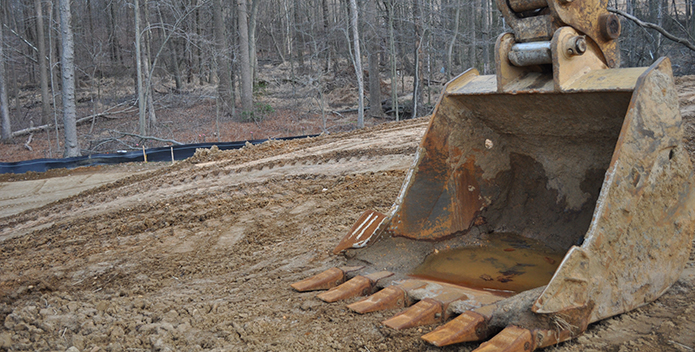The following first appeared in the Capital Gazette.
Environmentalists will once again try during the Maryland legislative session to save Maryland’s forests, and save us all millions of dollars in the process. But having been rebuffed last year, we’re taking a different approach.
We’ve talked to local government officials throughout the state, soliciting their ideas for how to improve the state’s Forest Conservation Act, the 1991 law has come up far short of its goal of protecting forests from development. Many local officials feel hamstrung when developers propose cutting down large swathes of forest.
An expert at the University of Maryland recently finished a study pinpointing a glaring weakness of the FCA. David Newburn of the College of Agriculture and Natural Resources pointed out that the law that was supposed to protect forests actually allows developers to bulldoze the best ones we have—our most intact, ecologically valuable “priority” forests.
Our own research has found numerous development projects in Anne Arundel, Prince George’s, Howard, Frederick and other counties in which builders virtually clear-cut 70 percent to 80 percent of the large priority forests on the tracts, often with little requirement to replant trees.
Dense woodlands clean our air and our water, bestowing oxygen and other benefits in the process. We literally can’t live without forests. And we can’t save the Chesapeake Bay and its tributaries if one of the best natural pollution filters continues to shrink. Developers cut down 17,000 acres in the past nine years in Maryland, a trend expected to continue.
Forest loss means economic loss as well. Since 1973, woodland destruction in the Baltimore-Washington region has resulted in a 19 percent increase in polluted runoff at a cost of over $1 billion, according to the Maryland Department of Natural Resources.
So while state taxpayers are paying hundreds of millions of dollars to reduce polluted runoff, developers are being allowed to cut down forests that do the same thing for free. Anne Arundel alone faces costs of $344 million through fiscal 2020 to restore developed areas in order to reduce polluted runoff, according to the county’s 2016 Financial Assurance Plan for complying with state and federal stormwater permits.
Take action now and tell Maryland legislators: Protect Our Forests.
Anne Arundel, in fact, is ground zero in this fight. Its forests continue to be razed to make way for subdivisions, shopping centers and other projects. Developers cut down an average of nearly 300 acres a year in the county. Residents are now fighting to block large forest-clearing development projects, such as one on Glebe Heights on the Mayo Peninsula that threatens a 74-acre woodland.
In its current state, the FCA handicaps those residents. We need to improve the state law that was intended to protect forests for us.
Thankfully, the law does not need wholesale changes. A few precise improvements will provide meaningful benefits.
These include clearly defining priority forests, clarifying what justifies clearing them, requiring that an acre of forest be replanted for each acre of priority forest cut down, clarifying that forest protection planning must come early in the development process, and authorizing and encouraging better spending of fee-in-lieu money so some of it can be used by state, local and nonprofit agencies and groups that already replant trees.
The legislation that would make these changes, Senate Bill 610, is scheduled for Feb. 20 before the Senate Education, Health and Environmental Affairs Committee. Before the hearing, advocates will hold a “Rally Your Representative” event letting the public meet with state elected officials. Details on the rally are at www.cbf.org/RallyYourReps.
Saving our forests is a no-brainer, from both ecological and economic perspectives. Yet when it comes to development issues, our state elected officials sometimes need extra persuasion. We urge tree-huggers, fiscal conservatives, and everyone else to insist on improvements to the FCA because, in the end, we simply can’t afford to lose so much woodland.




